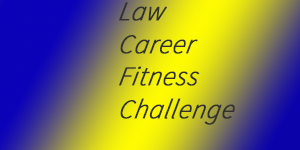Law Career Fitness Challenge #7- When you're picking Grapes, Pick Grapes
 The surest path to career success is to bring your full attention to what you’re doing right now – however mundane and trivial the task may be.
The surest path to career success is to bring your full attention to what you’re doing right now – however mundane and trivial the task may be.
That’s the meaning behind the Zen saying: “When you’re picking grapes, pick grapes.”
It’s more challenging than you think.
Let’s say you start out picking grapes. You’re doing great. You’re having fun, picking like crazy. Pretty soon you get bored. Your back starts to ache. Your mind wanders. You think about what you’re having for dinner. You think of all the unchecked items on your to-do list. It’s a beautiful day and here you are stuck picking grapes. You look across the street and see a guy picking apples. You wish you had his job. Apples are way better than grapes. Plus he’s probably making twice as much money.
Before you know it, you’re boiling with resentment. You hate picking grapes. You deserve better.
You know how this story ends. You will either quit your grape-picking job in frustration, get fired for having a lousy attitude or sink into a life of toil and misery.
The Power of Now
But there is an alternate ending:
“Are you resisting your here and now?” asks Eckhart Tolle in The Power of Now. “The Now, of course, also implies the here. Some people would always rather be somewhere else. Their ‘here’ is never good enough. Through self-observation, find out if that is the case in your life. Wherever you are, be there totally. If you find your here and now intolerable and it makes you unhappy, you have three options: remove yourself from the situation, change it, or accept it totally. If you want to take responsibility for your life, you must choose one of those three options, and you must choose now. Then accept the consequences. No excuses. No negativity. No psychic pollution. Keep your inner space clear.”
The flip side of denying the Now is trying to fill it with so much activity you delude yourself into thinking you’re being super-productive. This is called multitasking. You drive to work while listening to the radio while checking your voicemail while monitoring your GPS while having a sort-of conversation with your passenger.
It might feel like you’re clicking on all cylinders. You’re not. You’re actually getting less done than if you’d simply concentrated on one task at a time.
“[W]hat we have just uncovered in the last couple of years … is that although we think we’re multitasking, we’re not,” said psychologist and neuroscientist Daniel Levitin on the Diane Rehm Show. “The brain doesn’t actually work that way. What we’re doing is timesharing our attention. We pay attention to one thing for a second or two and then another thing and then another thing and we come back around to the first. We fracture our attention to little itty-bitty bits without really focusing on any one thing.”
You’re also making yourself sick. Literally. Multitasking causes headaches, exhaustion and insomnia. If it becomes your standard mode of operation, it can lead to chronic back pain, stomach troubles, heart disease and depression, according to the National Institute for Occupational Safety and Health.
Five Training Tips
- Avoid information overload. Today we absorb five times as much information – through smartphones, social media, tweets, the Internet – than we did in 1986, studies show. That’s the equivalent of reading 176 newspapers from cover to cover.
- Get a grip on the Now. You can do this anywhere, anytime. If you’re driving, be aware of the physical sensations of your body. Feel your hands on the steering wheel. Feel your feet on the floorboards. Breathe. Feel the cool air coming in through your nose and the slightly warmer air going out. Getting in touch with your body is an easy way to bring awareness to the Now.
- Know your limits. Two decades ago, it was thought that the brain could process five to nine things at once. Actually we can only competently do two or three things at a time.
- Take a walk. Or stare out the window and daydream, because guess what? It’s good for you. “[I]f you feel that your mind is wandering, rather than reaching for another cup of coffee, give in to your brain,” says Levitin. “Let your mind wander and you’ll find that after 10 or 15 minutes of that, you’re completely refreshed. You’ve restored some of the glucose that’s been taken up with decision making, calmed the cortisol release, the stress hormone. And people who take breaks like this, 15 minutes every couple hours – although their bosses think that they’re being lazy – at the end of the day, they’ve gotten more work done and their work has been more creative.”
- Practice surrender. “[If] you can’t remove yourself from the situation, then accept you’re here and now by totally dropping all inner resistance,” says Tolle. “The false, unhappy self that loves feeling miserable, resentful or sorry for itself can then no longer survive. This is called surrender. Surrender is not weakness. There is great strength in it. Through surrender, you will be free internally of the situation.”
If you missed last week's challenge, you can find it here.
Sources:
- Diane Rehm Show http://thedianerehmshow.org/shows/2015-09-10/daniel-levitin-the-organized-mind
- Consumer Health Day http://consumer.healthday.com/encyclopedia/emotional-health-17/emotional-disorder-news-228/multitasking-and-stress-646052.html
- Stumbling on Happiness https://www.randomhouse.com/kvpa/gilbert/
- The Power of Now http://www.amazon.com/The-Power-Now-Spiritual-Enlightenment/dp/1577314808




